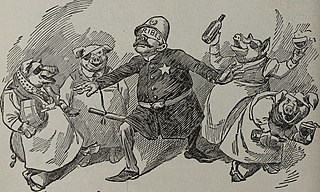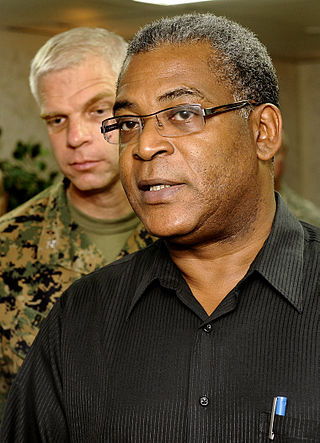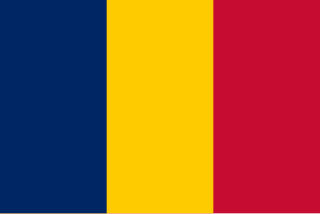
Bribery is the offering,giving,receiving,or soliciting of any item of value to influence the actions of an official,or other person,in charge of a public or legal duty and to incline the individual to act contrary to their duty and the known rules of honesty and integrity. With regard to governmental operations,essentially,bribery is "Corrupt solicitation,acceptance,or transfer of value in exchange for official action."

Police corruption is a form of police misconduct in which law enforcement officers end up breaking their political contract and abusing their power for personal gain. This type of corruption may involve one or a group of officers. Internal police corruption is a challenge to public trust,cohesion of departmental policies,human rights and legal violations involving serious consequences. Police corruption can take many forms,such as:bribery,theft,sexual assault,and discrimination.

Corruption is a form of dishonesty or a criminal offense that is undertaken by a person or an organization that is entrusted in a position of authority to acquire illicit benefits or abuse power for one's gain. Corruption may involve activities like bribery,influence peddling,and embezzlement,as well as practices that are legal in many countries,such as lobbying. Political corruption occurs when an office-holder or other governmental employee acts in an official capacity for personal gain.

Global Witness is an international NGO established on November 15 1993 that works to break the links between natural resource exploitation,conflict,poverty,corruption,and human rights abuses worldwide. The organisation has offices in London and Washington,D.C.

Political corruption in Ghana has been common since independence. Since 2017,Ghana's score on Transparency International's Corruption Perceptions Index has improved slightly from its low point that year,a score of 40 on a scale from 0 to 100. Ghana's score rose to 43 by 2020 and has remained there until the present,2023. When ranked by score among the 180 countries in the 2023 Index,Ghana ranked 70th,where the country ranked first is perceived to have the most honest public sector. For comparison with worldwide scores,the best score was 90,the average score was 43,and the worst score was 11. For comparison with regional scores,the average score among sub-Saharan African countries was 33. The highest score in sub-Saharan Africa was 71 and the lowest score was 11.

Corruption in India is an issue which affects economy of central,state,and local government agencies. Corruption is blamed for stunting the economy of India. A study conducted by Transparency International in 2005 recorded that more than 62% of Indians had at some point or another paid a bribe to a public official to get a job done. In 2008,another report showed that about 50% of Indians had first hand experience of paying bribes or using contacts to get services performed by public offices. In Transparency International's 2023 Corruption Perceptions Index,which scored 180 countries on a scale from 0 to 100,India scored 39. When ranked by score,India ranked 93rd among the 180 countries in the Index,where the country ranked first is perceived to have the most honest public sector. For comparison with worldwide scores,the best score was 90,the worst score was 11,and the average score was 43. For comparison with regional scores,the highest score among the countries of the Asia Pacific region was 85,the lowest score was 17,and the average score was 45. Various factors contribute to corruption,including officials siphoning money from government social welfare schemes. Examples include the Mahatma Gandhi National Rural Employment Guarantee Act and the National Rural Health Mission. Other areas of corruption include India's trucking industry,which is forced to pay billions of rupees in bribes annually to numerous regulatory and police stops on interstate highways.

Corruption in South Africa includes the improper use of public resources for private ends,including bribery and improper favouritism. Corruption was at its highest during the period of state capture under the presidency of Jacob Zuma and has remained widespread,negatively "affecting criminal justice,service provision,economic opportunity,social cohesion and political integrity" in South Africa.

Jean-Max Bellerive is a Haitian politician and former Prime Minister of Haiti. He resigned on 14 May 2011.

Corruption in Afghanistan is a widespread and growing problem in Afghan society. Transparency International's 2023 Corruption Perceptions Index ranks the country in 162nd place out of 180 countries. The 180 countries of the Index are scored on a scale from 0 to 100 according to the perceived corruption in the public sector,and then ranked by their score. Afghanistan's 2023 ranking is based on a score of 20. For comparison with worldwide scores,the best score was 90,the average score was 43,and the worst score was 11. For comparison with regional scores,the highest score among the countries of the Asia Pacific region was 85,the average score was 45 and the lowest score was 17. In this region,only North Korea had a lower score than Afghanistan. The Taliban significantly tackled corruption upon taking power in 2021;Afghanistan was ranked in 150th place in the 2022 Corruption Perceptions Index,following a ranking of 174th in 2021.

Corruption in Sweden has been defined as "the abuse of power" by Swedish National Council for Crime Prevention (Brå). By receiving bribes,bribe takers abuse their position of power,which is consistent with how the National Anti-Corruption Unit of the Swedish Prosecution Authority specifies the term. Although bribes and improper rewards are central in the definition of corruption in Sweden,corruption in the sense of "abuse of power" can also manifest itself in other crimes such as misuse of office,embezzlement,fraud and breach of trust against a principal.

Corruption in Sudan is substantial,as it is considered one of the most corrupt nations in the world. On the 2010 World Bank Worldwide Governance Indicators,on one hundred point scale,it scored in the single digits in every category,including 0.9 for political stability,6.2 for rule of law,7.2 for regulatory quality,6.7 for government effectiveness,and 4.3 for control of corruption. In 2011 Freedom House named Sudan as one of the worst nations for human rights.

Corruption is endemic at every level of Liberian society,making Liberia one of the most politically corrupt nations in the world. As such,corruption is not specifically a punishable crime under Liberian law,which further exacerbates the nature of corruption present in the country. When President Sirleaf took office in 2006,she announced that corruption was “the major public enemy.”
Ye Jianming is a Chinese businessman. He is the founder and former chairman of CEFC China Energy Company Limited,a now defunct company that used to be a Global Fortune 500 energy and finance conglomerate. He has been under detention in China since March 2018 on charges of bribery.

Corruption in Bolivia is a major problem that has been called an accepted part of life in the country. It can be found at all levels of Bolivian society. Citizens of the country perceive the judiciary,police and public administration generally as the country's most corrupt. Corruption is also widespread among officials who are supposed to control the illegal drug trade and among those working in and with extractive industries.

Corruption in Tajikistan is a widespread phenomenon that is found in all spheres of Tajik society. The situation is essentially similar to that in the other former Soviet republics of Central Asia. Reliable specifics about corruption can be difficult to come by,however,as can hard information about the effectiveness of supposed anti-corruption initiatives.

Corruption in Guinea-Bissau occurs at among the highest levels in the world. In Transparency International's Corruption Perceptions Index for 2023,Guinea-Bissau scored 22 on a scale from 0 to 100. When ranked by score,Guinea-Bissau ranked 158th among the 180 countries in the Index,where the country ranked first is perceived to have the most honest public sector. However,Guinea-Bissau's score has either improved or remained steady every year since its low point in 2018,when it scored 16. For comparison with worldwide scores,the best score in 2023 was 90,the average score was 43,and the worst score was 11. For comparison with regional scores,the average score among sub-Saharan African countries was 33. The highest score in sub-Saharan Africa was 71 and the lowest score was 11. In 2013,Guinea-Bissau scored below the averages for both Africa and West Africa on the Mo Ibrahim Foundation’s Index of African Governance.

Corruption in Chad is characterized by nepotism and cronyism. Chad received a score of 20 in the 2023 Transparency International Corruption Perceptions Index on a scale from 0 to 100. When ranked by score,Chad ranked 162nd among the 180 countries in the Index,where the country ranked first is perceived to have the most honest public sector. For comparison with worldwide scores,the best score was 90,the average score was 43,and the worst score was 11. For comparison with regional scores,the average score among sub-Saharan African countries was 33. The highest score in sub-Saharan Africa was 71 and the lowest score was 11.

Joseph Lambert is a Haitian politician who served as the president of the Haitian Senate from 2021 to 2023. Lambert had previously been the president of the Senate from 2006 to 2008 and from 2018 to 2019. He was sanctioned by Canadian and American authorities for his involvement in the global illicit drug trade,corruption,and gross violations of human rights on 4 November 2022.
Rony Célestin is a Haitian politician from the PHTK party. He represents the Centre department. Célestin was sanctioned by the Government of Canada for allegedly supporting illegal activities of armed criminal gangs and the United States Government for abuse of his public position and corrupt activity.

Corruption in Namibia spans from the pre-colonial era to the present day. After independence in 1990,corruption and fraud issues continued,with cases involving misappropriation of state funds as well as resources,bribery and corruption in government tenders and contracts,and embezzlement of funds meant for social programs and development projects.

















